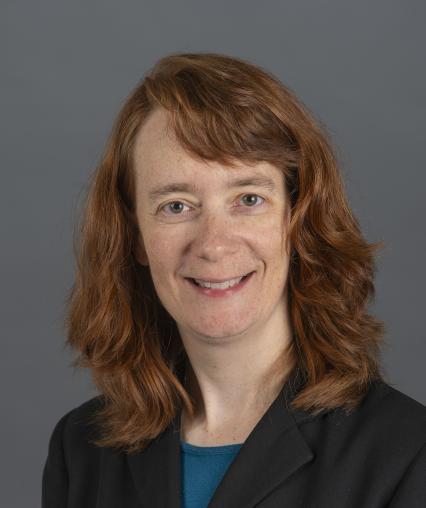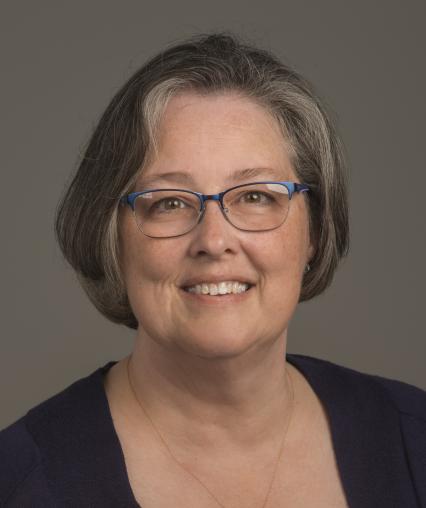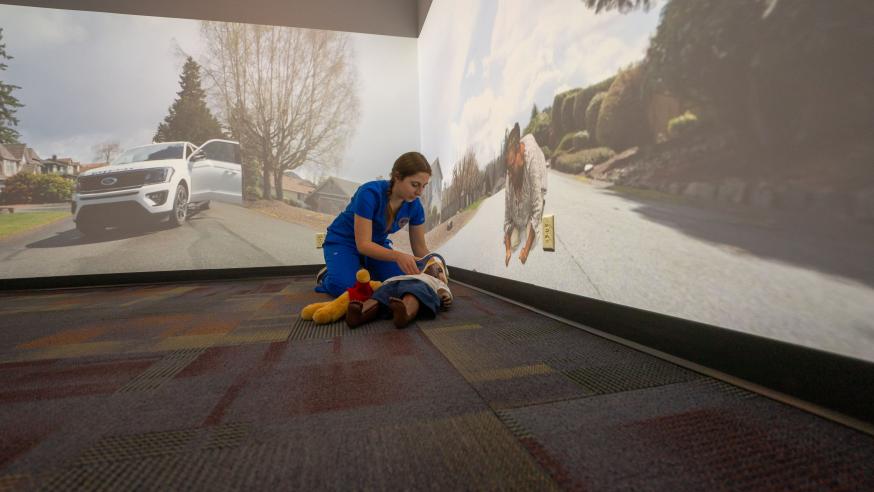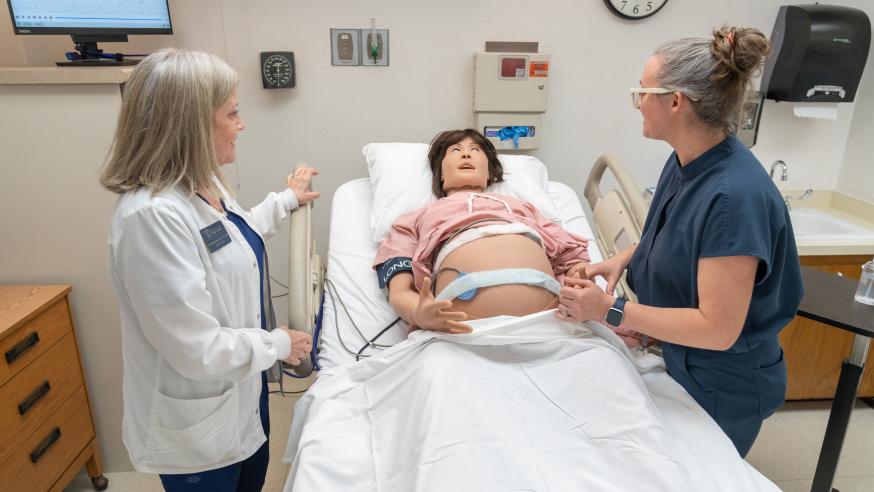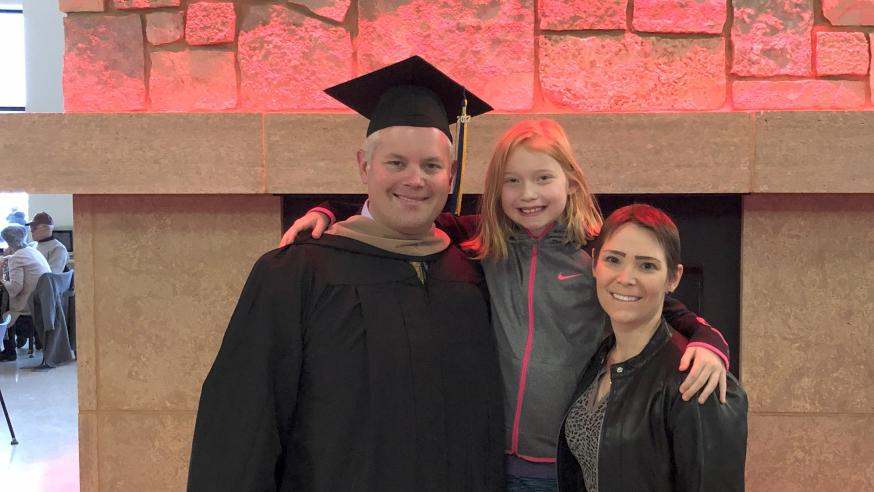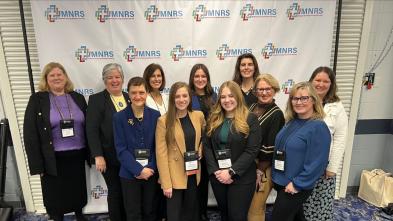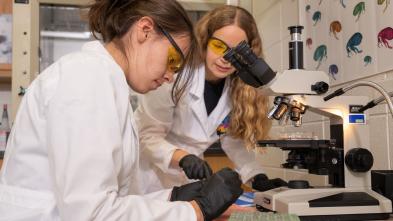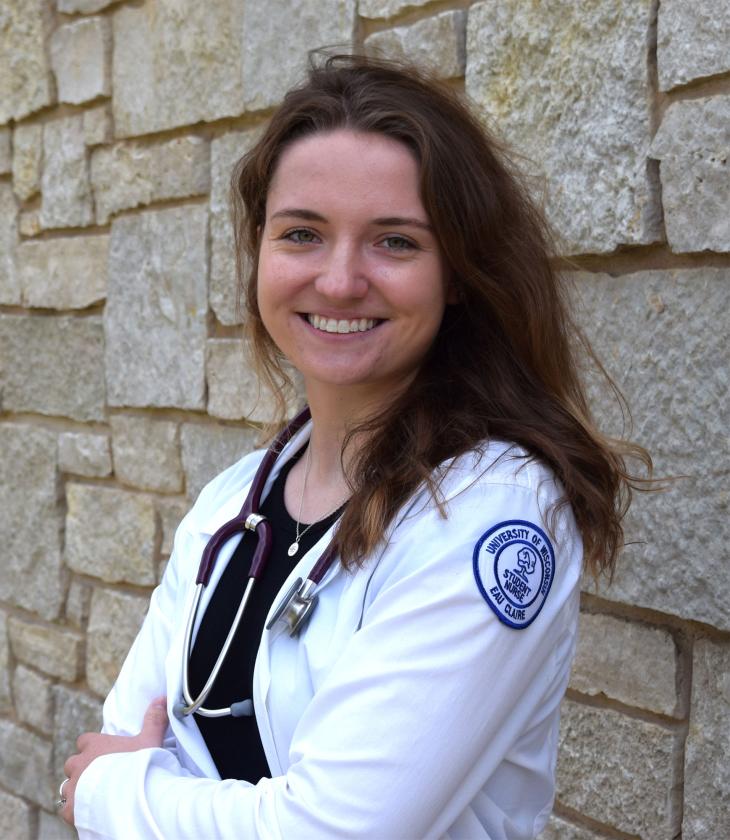

Master of Science in Nursing
Our accredited Master of Science in Nursing (MSN) program is designed to prepare students for leadership roles in adult-gerontologic or family health nursing.
Increase Your Expertise
With a hybrid model, this flexible program is accessible for currently working nurses who would like to take their careers to the next level. No matter where your interests lie, our rigorous program will help you succeed — and help you become a decision-maker in the nursing field.
Throughout the program, you'll integrate knowledge and theory of health policy, organizations, and health care financing and use it as a basis for the provision of quality, cost-effective care. Our program's core curriculum is curated to develop and increase your competencies in theory analysis and evaluation; concept clarification and development; research and refined skills in clinical inquiry; leadership; and analysis of contemporary issues. Building on the core curriculum, you'll apply your new knowledge and skills in a clinical setting. This will prepare you well for a variety of advanced nursing roles across health care settings and help you demonstrate effective advocacy for diverse populations.
Students select a population focus of either adult-gerontologic or family health nursing and are prepared for the role of nursing educator or nursing administration/leadership and management. If you are interested in pursuing the nurse practitioner or nurse executive role preparations, you should apply to our post-baccalaureate Doctor of Nursing Practice (BSN-to-DNP) degree option.
No matter which focus you choose, we are here to support you and your goals with an accredited program and expert faculty to guide you on this exciting journey.
Program Details
Accreditation Information
The baccalaureate degree program in nursing, master's degree program in nursing, and Doctor of Nursing Practice program at the University of Wisconsin-Eau Claire are accredited by the Commission on Collegiate Nursing Education (CCNE), 655 K Street NW, Suite 750, Washington, DC 20001, 202-887-6791, through December 31, 2031.
The programs are also approved by the Wisconsin State Board of Nursing.
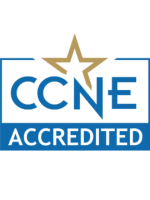
Blugold Stories
JustThe Facts
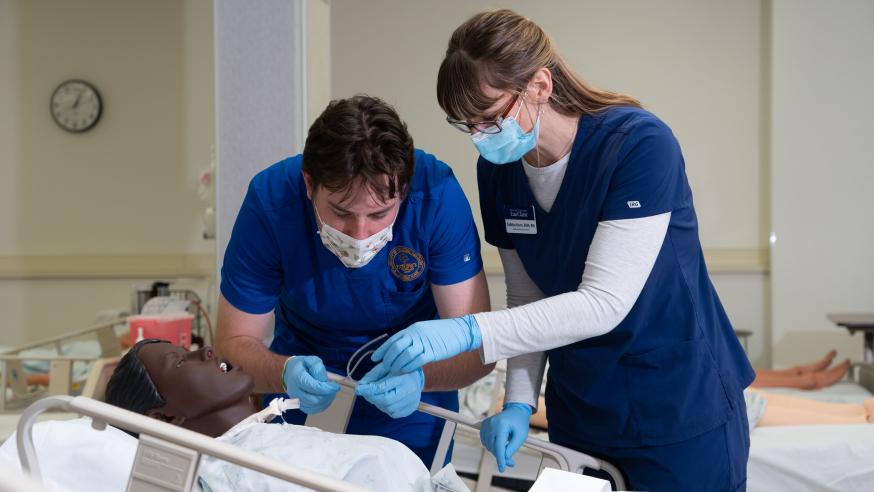
Where can the master of science in nursing program lead me after graduation?
A master's degree in nursing opens the door to new and exciting career opportunities. Our CCNE-accredited program will increase your leadership skills, update your health care provider knowledge and help you stand out when applying for jobs. A master’s degree in nursing also allows you to become a nurse educator, shaping the future of professional nursing.
Example Careers
- Nurse Educator
- Nursing Faculty
- Nurse Administrator
- Nurse Manager
Courses throughout the MSN program are designed to build on your core nursing knowledge, helping you to become an expert in your field. You can personalize your studies to focus on education or administration career goals and take courses that align best with your passions and interests. Together, you and your advisor will select courses to increase your knowledge, population focus and functional role preparation. In the classroom, you'll examine health policy, personal and professional transitions, and ever-evolving, advanced nursing roles.
Students can select full-time or part-time programs of study. You can find information on potential course sequencing in the MSN Sample Program Plan. Courses are offered during fall semester, Winterim, and spring semester. The program plan begins in the fall semester.
Here are a few courses in Master of Science in Nursing at UW-Eau Claire.
NRSG 715
Leadership and Health Policy in Nursing
Leadership application for the graduate-prepared nurse with an analysis of external and internal influences. Examination of health policy, personal and professional transitions, and evolving advanced nursing roles.
NRSG 718
Conceptual and Theoretical Foundations of Nursing
The basic philosophies, concepts and theories, and ethical decision-making frameworks underlying the development of the discipline of nursing are examined. Emphasis is focused on the development of nursing knowledge.
NRSG 701
Nursing Research: Methods
Philosophies of science, research methodologies, and qualitative and quantitative data analyses are examined. Legal and ethical issues applicable to nursing research are discussed.
Get More Info
Sign up to receive additional information about our campus.
Meet the Faculty

